Nigeria has one of the poorest population in the world. About 82.9 million people have been estimated to be living in poverty in the country, according to the statistics published by the National Bureau of Statistics.
The report titled Nigerian Living Standards Survey (NLSS) showed the breakdown of poverty and inequality in the country between September 2018 and October 2019. According to the report, more than 40% of people in the country lived below the poverty line of N137,430 per year.
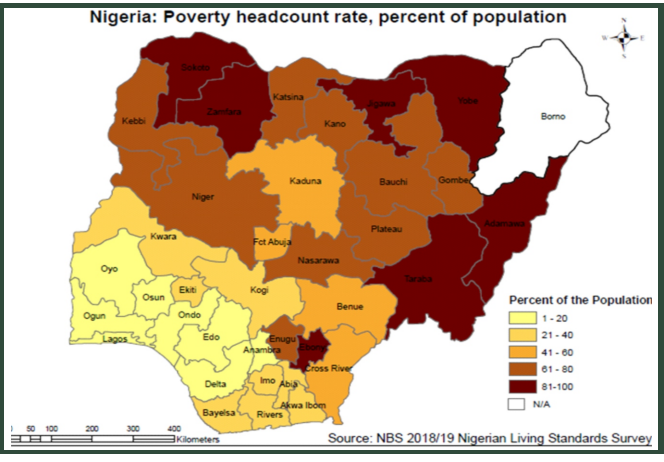

Poverty Capital of the World
The stats show a slight decline from the 86.9 million reported by World Data Lab’s Poverty Clock in June 2018, when Nigeria overtook India as the poverty capital of the world. At the time India was speculated to have a poor population of about 71.5 million, 21% lower than that of Nigeria.
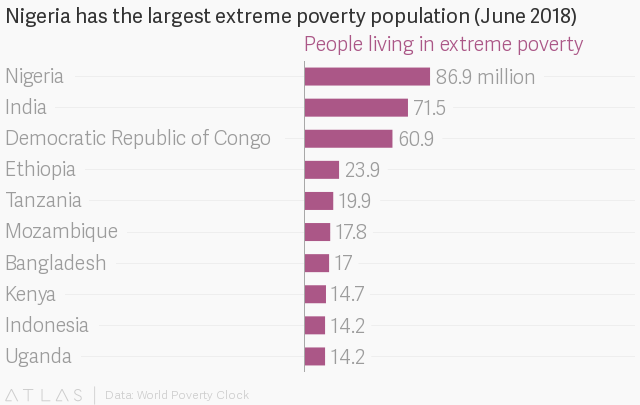

It gets worse. According to World Poverty Clock, if Nigeria doesn’t take drastic measures to change the current trajectory, more than 110 million people will be living in extreme poverty by 2030.
More than 50% of Nigerians forecasted to be living in poverty by 2030
However, poverty lies majorly in people’s lack of access to basic amenities such as food and water, healthcare, shelter and education. According to an Oxford University study, this was what halved India’s poverty rate.
By finding ways to solve these issues Nigeria can start lifting its population from extreme poverty. Here are some ways concerned stakeholders and policymakers can assist in their efforts to drive poverty reduction in the country.
Education
More than 66% of the poor in Nigeria are without education. By investing in the education of the poor especially the children and youths, the circle of poverty can be broken as they will be empowered to get better sources of income when they grow up.
Nigeria is home to over 10 million out-of-school children. Two-thirds of this population is concentrated in Nigeria’s highly populated north-west and north-eastern regions. This is one of the reasons the Northern states rank poorest in the country.
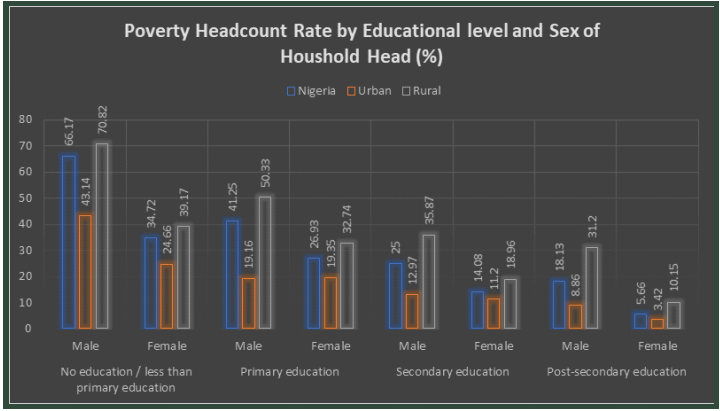

According to the NBS report, 9 of the 10 poorest states are from the northern region, with Sokoto and Jigawa being the highest. What these numbers tell us is that a revolution and campaign for education is required in Nigeria especially in the Northern part for the poverty rate in the region to drop.
Mobile Money
The poor account for the majority of financially underserved in the country. Lack of financial records is one of the major reasons why the poor, especially the skilled ones, are excluded from formal lending that could potentially help them out of poverty.
Mobile Money provides a potential solution. It doesn’t require any form of payment so it’s easy for the poor to join. According to GSMA, Sub-Saharan Africa which includes Nigeria now has about 469 million Mobile Money operators and growing fast, after adding about 50 million the last year. By providing financial inclusion for the poor through Mobile Money, you provide access to funds that could potentially help them work their way out of poverty.
The summary of the NBS report shows that about 52.1% of rural dwellers and only 18.04% of urban dwellers. By investing in driving the expansion of Mobile Money especially in the rural areas, the poor can have access to financial opportunities the will help them live better.
Agriculture
Agriculture provides most of the income generated by the poor in Nigeria. According to the NBS, agriculture accounted for more than 58% of the income generated by men and 37% in that of the women.
On average, 4 out of 10 individuals in Nigeria has real per capita expenditures below N137,430 per year, which translates to N376.5 per day.
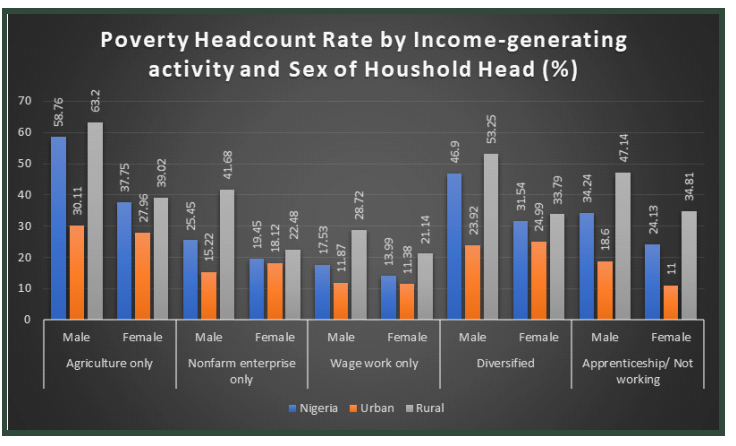

Agriculture can be very productive with the right funding and marketing. With a large percentage of poor Nigerians already into Agriculture, providing investment for them to scale their farms as well as educating them on modern agricultural management could help lift a large number of Nigerians from extreme poverty.
Also, the digitisation of agriculture could help. By expanding the capability of production of agricultural produce, Nigeria can improve economic productivity through exportation.
SME loans
Reducing poverty in Nigeria will entail increasing opportunities for people to grow. What this means investing in the potentials of small business especially in rural communities.
Access to microfinance such as the Federal Government’s TraderMoni loans has been proven to reduce poverty around the world. The loan helps small shop owners and artisans to expand their businesses. However, with the current economic situation in the country the current starting loan of N10, 000 ($25.6) is too small to have any considerable effects.
Support for small business owners could help their business grow, removing the fears of closure and of declining back to abject poverty.
Skill empowerment
Investing in human potential and the creation of jobs for the youths is a major cornerstone that must be addressed if poverty is to reduce in Nigeria. Having a relevant skill in the ever-changing economic dynamics of the country is needed for people to make a living.
By providing a means for youths to learn relevant skills, they can start to generate income and join the economic productivity of the country.
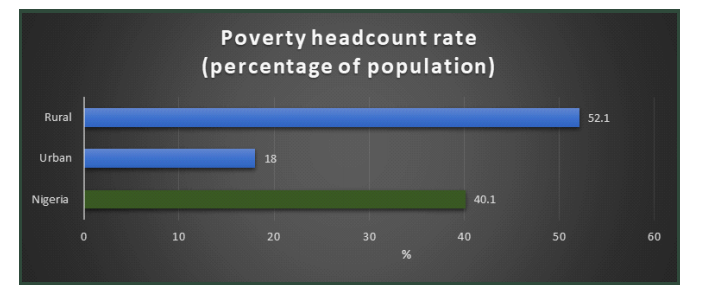

Nigeria ranks 152 out of 157 countries on the World Bank’s Human Capital Index. This means that the country is barely using its attainable human capital index. Providing well-funded digital and practical skill training programmes for those millions of Nigerians especially those outside the formal school system will help reduce the poverty rate drastically.
Summary
At the current pace, Nigeria is probably not going to meet up to the United Nations’ Sustainable Development Goal (SDG) to end extreme poverty by 2030. However, if the government, which is the largest stakeholder in this pulls together and implement some of the points listed above, we will have an improvement to celebrate instead of the generally forecasted doom.






